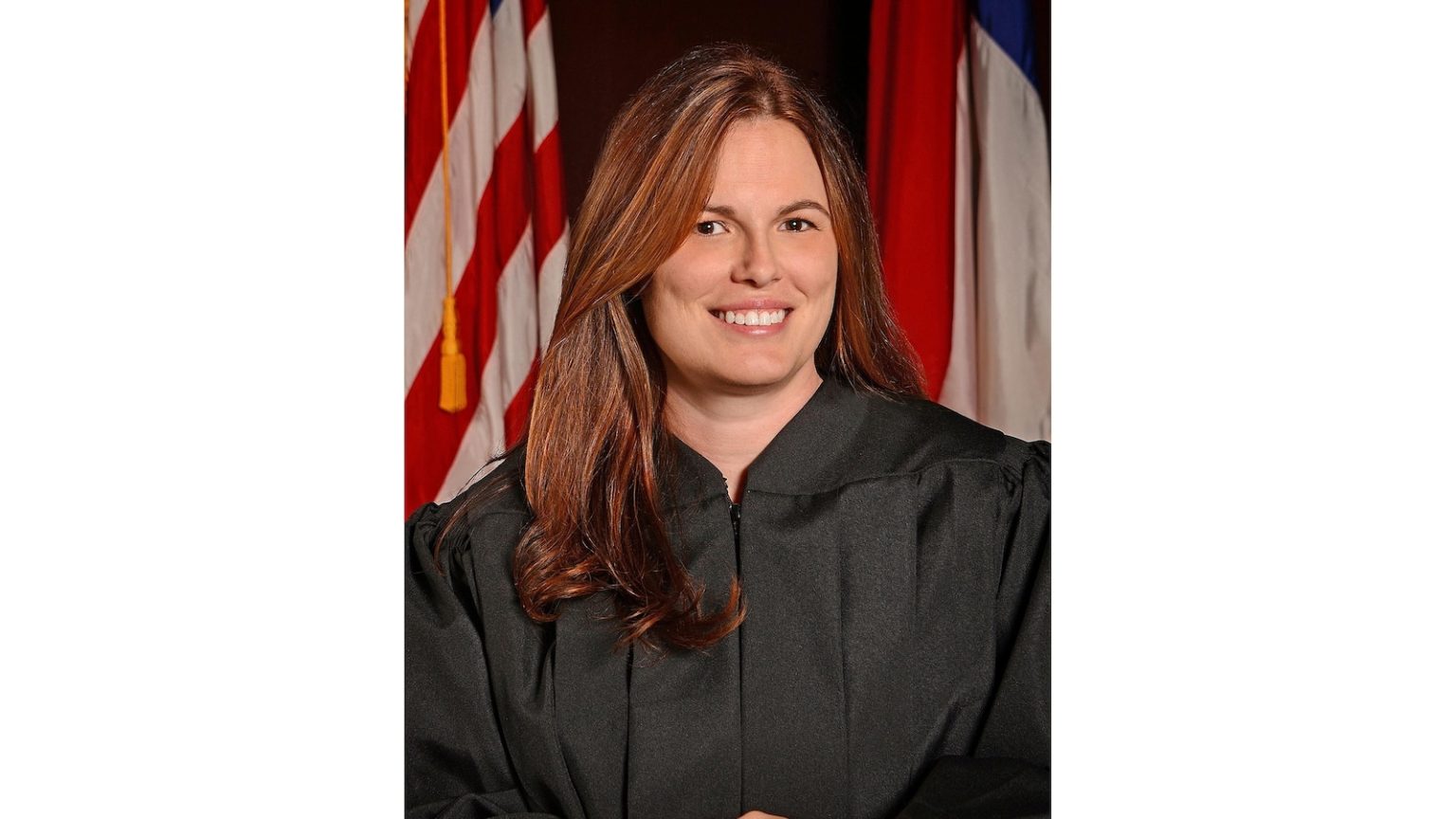RALEIGH, N.C. — North Carolina’s Supreme Court ruled on Friday that tens of thousands of cast ballots challenged by the trailing candidate in November’s unresolved election for a seat on the court must remain in the election count.
The decision partially overturns last week’s ruling by a panel of the intermediate-level Court of Appeals that had favored Republican Jefferson Griffin, who closely trails Democratic Associate Justice Allison Riggs.
But a majority of justices — all registered Republicans — agreed with the lower court that additional ballots from two other categories that Griffin contested were wrongly allowed in the tally. Some of these voters — potentially thousands who serve in the military or live overseas — would still get a chance to turn in a photo identification or an ID exception form for their choice in the race to remain in the count, the court’s prevailing order says.
The Supreme Court’s order isn’t expected to fully resolve the close race between Griffin and Riggs, who leads Griffin by 734 votes from more than 5.5 million ballots cast in their race. It’s the only 2024 election in the country that is still undecided.
It’s also unknown whether the outstanding ballots that could ultimately get taken out of the count could flip the result to Griffin, himself a current Court of Appeals judge. Griffin did not sit on the three-judge panel whose majority ruled for him last week, and Riggs did not participate in the Supreme Court deliberations.
Riggs’ attorneys filed a motion late Friday in U.S. District Court in Raleigh asking a judge to issue an injunction preventing the state appeals court decisions from being carried out immediately.
Riggs and the State Board of Elections, which had previously thrown out Griffin’s formal protests of more than 65,000 ballots covering three categories, had signaled plans to return to federal court if necessary, should the justices side with Griffin to potentially plead violations of federal elections and voting rights laws.
The largest category of challenged voters — roughly 60,000 — included ballots cast last fall by people who have been registered to vote since 2004, but their records lack a driver’s license number or the last four digits of a Social Security number.
Friday’s prevailing opinion said the Court of Appeals got it wrong by declaring these ballots shouldn’t have been counted. That’s because, according to the opinion, the blame rests with the State Board of Elections for failing for years to properly collect those numerical identifiers, not the voters. These voters ultimately proved their identity by complying with the state’s new photo ID law, and longtime legal precedent says such mistakes by election officials cannot result in cast votes being voided, the order reads.
“Accordingly, we cannot agree with the Court of Appeals that the Board erred by counting their ballots,” the order says. The Court of Appeals ruling on the registrations, had it been upheld, also would have given these voters about three weeks to provide identifying numbers that if verified would mean their ballots would have counted.
A majority of the six justices participating in the case declined to alter the bulk of the portion of the Court of Appeals ruling that determined ballots from a category of military or overseas voters who did not provide copies of photo identification or ID exception forms were ineligible. But instead of giving 15 business days to these voters to provide an ID or form to keep them eligible, the prevailing order directed a “cure” deadline in 30 calendar days.
And the high court kept in place the Court of Appeals ruling that those in the third category — potentially hundreds of overseas voters who have never lived in the U.S. — were ineligible based on state residency laws to cast ballots and their choices must be removed from the totals.
Attorneys for Riggs and the board have said the votes challenged by Griffin were lawfully cast by voters based on the rules in place for the November election and should remain in the count.
Riggs said in a news release that while she was gratified that the justices reversed a large portion of the Court of Appeals decision, she wouldn’t give up “in my fight to protect the fundamental freedoms for which our military service members and their families have sacrificed so much.”
Griffin campaign spokesperson Paul Shumaker said Friday’s ruling was “consistent with what we asked in our initial filing.”
Associate Justice Anita Earls, the only Democrat among the participating justices on Friday, entered a blistering opinion of nearly 40 pages. While agreeing that canceling the ballots based on registration issues would have been inappropriate, Earls wrote that the prevailing order, should it stand, otherwise “compels unequal treatment of North Carolina voters and infringes on their state constitutional right to vote.”
In another opinion, Republican Associate Justice Richard Dietz wrote the courts should have agreed to conduct a full-blown review of the appeal, then declare Griffin’s claims could not be made to alter a past election. The Supreme Court held no oral arguments before Friday’s decision.
__
The story has been updated to correct where Riggs’ attorneys filed a federal court motion to Raleigh, not Wilmington.


